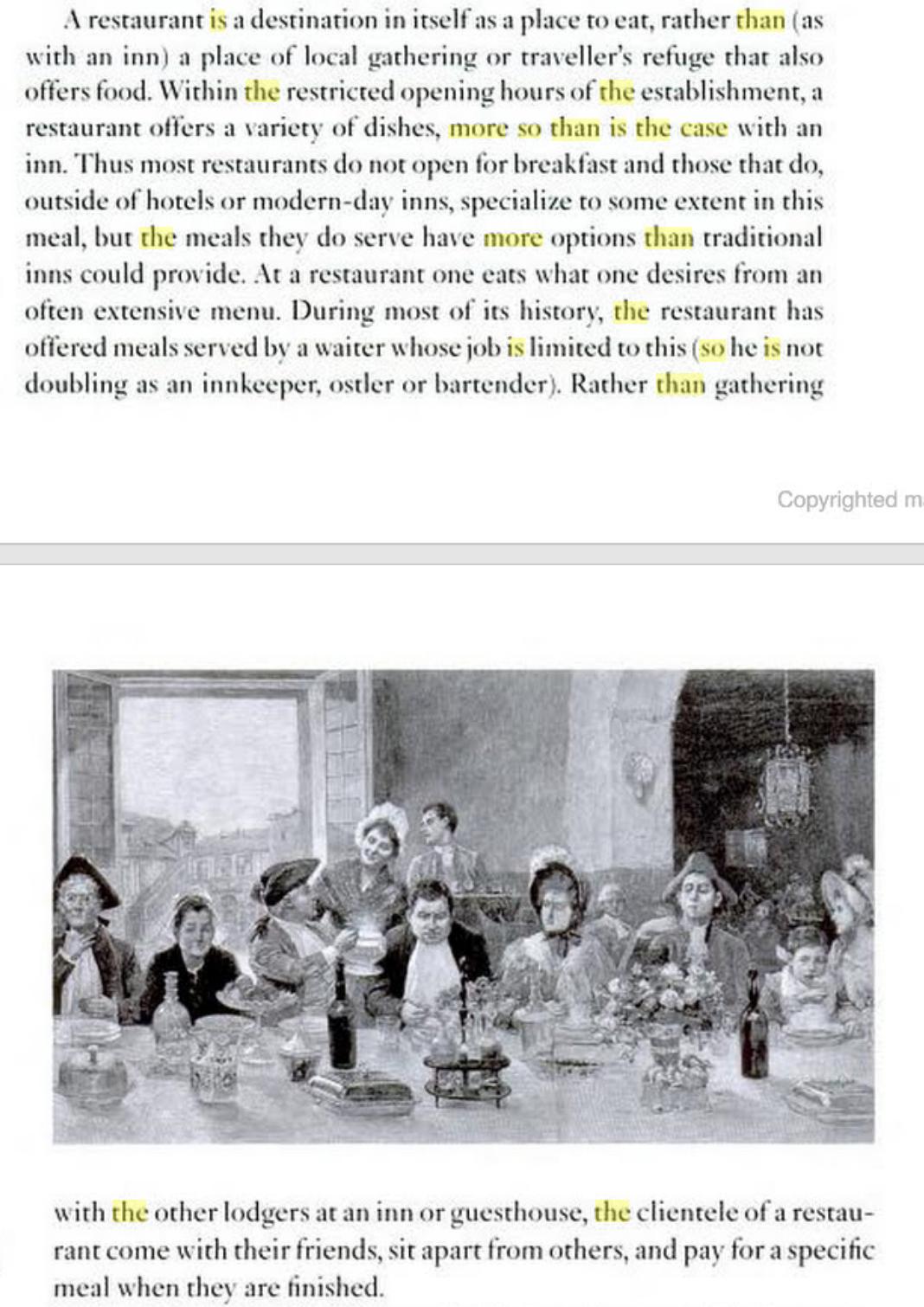Before my question, let me show you its context:
A restaurant is a destination in itself as a place to eat, rather than (as with an inn) a place of local gathering or traveler's shelter that also offers food. Within the restricted opening hours of the establishment, a restaurant offers a variety of dishes, more so than is the case with an inn. (Food: the history of taste'. by Paul H. Freedman, Yale professor of History.)
I can comprehend vaguely what these sentences say. But the problem is the one marked in bold. I cannot catch how come this construction was formed when it comes to a grammatical approach. I thought that was an inversion of 'more so than the case with an inn is.'. Or it could be something of I haven't learnt yet. Please give me some explanation about this.

